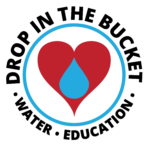 While having lunch in the South Sudan town of Aweil recently, we had the pleasure of meeting the director for a German NGO, GIZ. He struck up a conversation and when he learned we were helping to provide water in the region, asked if we’d be able to meet with him about something after lunch.
While having lunch in the South Sudan town of Aweil recently, we had the pleasure of meeting the director for a German NGO, GIZ. He struck up a conversation and when he learned we were helping to provide water in the region, asked if we’d be able to meet with him about something after lunch.
Apparently, their organization, in conjunction with USAID, has a big project of constructing 100 homes for the elderly returnees near one of the settlements. But, the problem is, there is no water in the area.
Along with the community needing water for drinking and all of their daily needs, they also need water to make their bricks for building, which the communities make and GIZ then buys from them. They asked if there was any way we could consider working in this area. I put our field crew in touch with their field guys and we’re now trying to see if we can help. It’s all about partnerships around here. It’s the best way of getting anything done. The task is enormous and you really have to work together.
Many of the people coming back were living in the Northern camps and don’t have jobs or money. It’s tricky because this is their homeland and they love their people. But in some ways their lives in the North were easier. There are a lot of challenges in the South.

We met one lady who was running a little tea stand. It was her first time to ever have a small business. She had two children who were helping her, a 14-year-old named Deng and an 8-year-old called Mathen Koul. When we asked her how the kids were adjusting, she said, “not well,” but that she keeps telling them things will get better. Her biggest concern is getting enough money each day to buy a small amount of food for them to eat.

The children in the villages surrounding Aweil only speak their tribal language, Dinka. Deng and Koul do not speak Dinka but instead a different version of Arabic than what is spoken in South Sudan. English is the new national language, but people mostly speak Juba-Arabic (a combination of Arabic and Swahili) and their tribal languages. It is great that Deng and Koul speak very good English, but I worry about how these children of the returnees are going to adjust to these Southern schools. The schools in town are much better than the ones in the villages. In these remote villages there is little motivation for children to attend; studying is conducted under the trees with no chairs or desks and two classes often simultaneously take turns sharing one chalkboard.
But education is definitely the key, and that’s what we’re here to do. There is no way this country will progress if these children are not educated. We are dedicated to providing the incentives needed to get these kids to school, and keep them there!
This starts with providing water and sanitation. I know that having water at these schools is going to make a huge difference, not only in terms of healthy bodies and healthy minds. We’ve seen what it’s done in Uganda and other areas of South Sudan in terms of keeping girls in class. So far, I’m seeing very few girls in these Aweil schools. But that just has to change.
As I watch the women struggle to work each day, with babies on their backs, I know there is a need, and desire, for family planning strategies. I spend a lot of time in the villages and have learned that not all women want 15 children. They don’t think they have options. This is another area where education would be invaluable.
We just have to provide some motivation to keep them in school and we’re developing some fantastic initiatives for doing just that. Building on what we’ve learned from our past projects, we have a five-year plan that we know will make a difference. Our crews are in the field. School starts April 1st and we’re ready to go!
We need to put a dollar amount on what it will cost to get girls in school and make it possible for them to stay in school. Whatever the cost, it will be far more cost effective than allowing the situation to continue the way it is.
The former UN Secretary-General Kofi Annan had this to say on the matter- “Study after study has taught us that there is no tool for development more effective than the empowerment of women. No other policy is as likely to raise economic productivity, or to reduce infant and maternal mortality. No other policy is as sure to improve nutrition and promote health—including the prevention of HIV/AIDS. No other policy is as powerful in increasing the chances of education for the next generation. And I would also venture that no policy is more important in preventing conflict, or in achieving reconciliation after a conflict has ended. But whatever the very real benefits of investing in women, the most important fact remains: Women themselves have the right to live in dignity, in freedom from want and from fear.”
There is no way to say it better.
